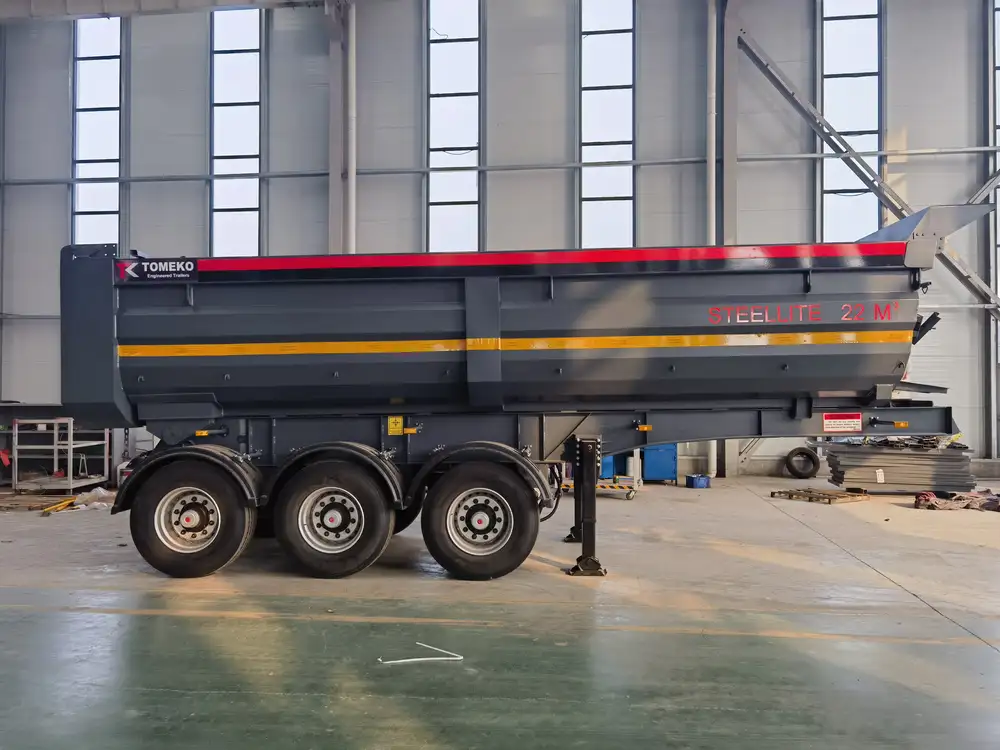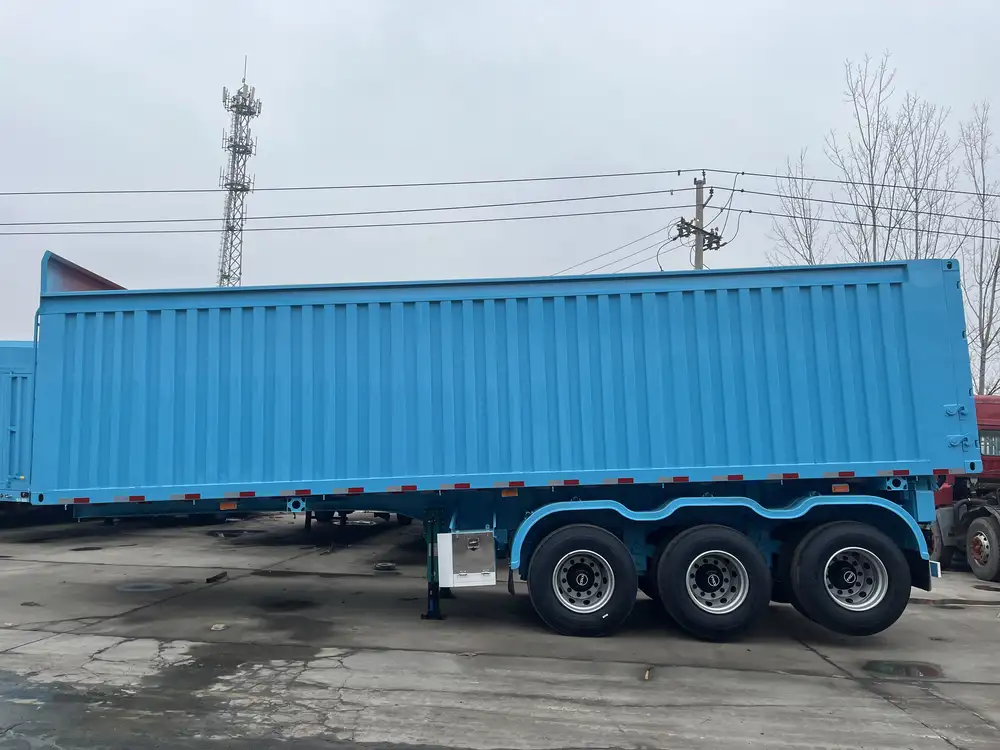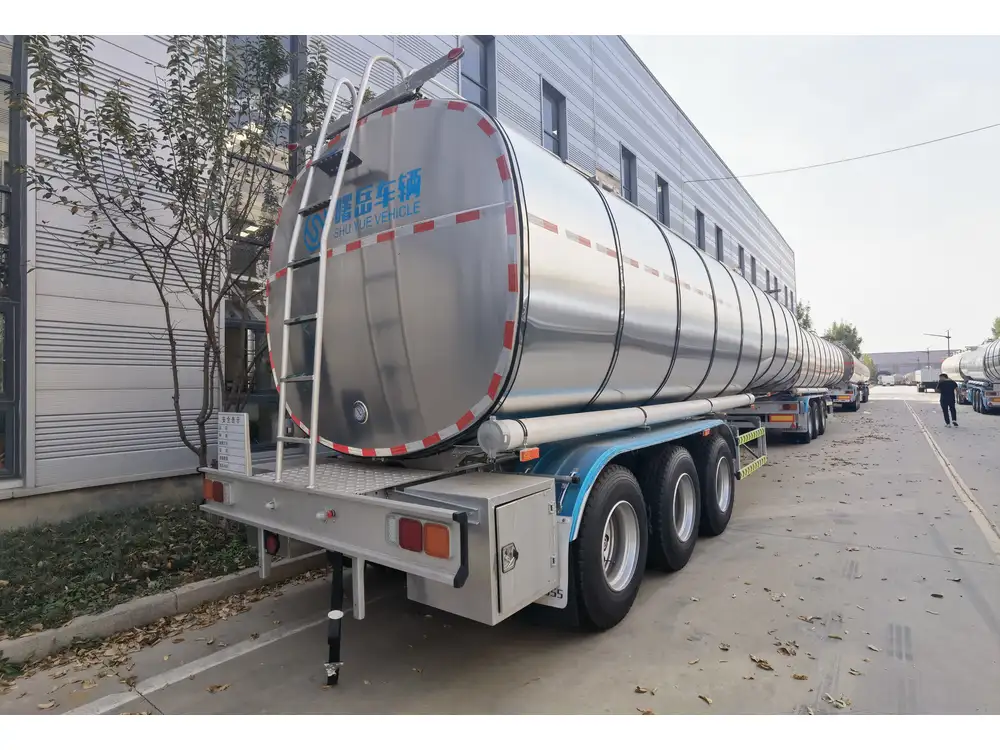Flatbed trailers are vital in the logistics and transportation industry, offering unmatched versatility and adaptability for shipping a wide array of cargo. Understanding the vast scope of items that can be transported on flatbed trailers can help businesses maximize their shipping efficiency and optimize their logistics strategy. This article delves deep into the types of cargo suitable for flatbed transport, the benefits of using these trailers, and essential considerations for shippers.
The Versatility of Flatbed Trailers
1. Building Materials
Flatbed trailers excel at transporting heavyweight and oversized building materials that traditional enclosed trailers may struggle with. Key items include:
| Item Type | Description |
|---|---|
| Steel Beams | Often used in construction, these beams require spacious transport without restrictions. |
| Concrete Panels | Heavy and unwieldy, these panels need secure loading and unloading capabilities. |
| Lumber | Various wood products, including planks and large timber sections, can be accommodated efficiently. |
| Roofing Materials | Shingles, panels, and other oversized roofing items can easily fit without causing damage. |

2. Machinery and Equipment
Heavy machinery is a staple of flatbed transportation. The ability to accommodate large dimensions and significant weights combines perfectly with:
| Machinery Type | Why Choose Flatbed |
|---|---|
| Excavators | Their size and weight demand the open space of a flatbed. |
| Forklifts | Easy to load and unload with minimal restrictions. |
| Bulldozers | Designed for rugged use, these machines fit securely on flatbed trailers. |
| Industrial Equipment | Large pumps, turbines, or specialized items can be shipped without concerns of enclosure. |
3. Vehicles
Transporting vehicles demands specialized handling. Flatbed trailers come with a unique set of features that make this an easy task:
| Vehicle Type | Transport Advantages |
|---|---|
| Cars | Secure loading systems help prevent damage during transport. |
| Trucks | Ideal for transporting large trucks that can’t fit in standard shipping containers. |
| Motorcycles | Their delicate build necessitates a careful loading process; flatbeds facilitate this. |
| Heavy-duty vehicles | CAPs can be shipped conveniently with flatbeds due to their size and weight considerations. |
4. Industrial Supplies
Flatbed trailers are also utilized for shipping a wide range of industrial supplies. This includes:
| Item Type | Importance of Flatbed Transport |
|---|---|
| Pipe and Tubing | Freed from size constraints, moving large quantities becomes efficient. |
| Steel Sheets | These large, flat items thrive on flatbed trailers as they are easier to load and secure. |
| Large Containers | Industrial supply chains frequently depend on these trailers for efficient transport. |

5. Furniture and Large Goods
While somewhat unconventional, flatbed trailers extend their use to residential and commercial furniture as well. Here’s how:
| Furniture Type | Shipping Benefits |
|---|---|
| Sofas | Their bulkiness makes flatbeds an appealing option. |
| Office Equipment | Desks and large office items can be stacked safely. |
| Seasonal Merchandise | Depending on the season, large items like outdoor furniture may require flatbed shipping. |
Benefits of Flatbed Trailers
Understanding the benefits of flatbed trailers provides actionable insights for businesses considering their transport options.
1. Accessibility
The open design of flatbed trailers enables easier loading and unloading, particularly for heavy machinery. Cranes and forklifts can access cargo without complications, reducing the time it takes to handle shipments.

2. Flexibility
Flatbeds accommodate various cargo sizes and types, giving shippers versatility in their transport choices. From building materials to heavy machinery, you can ship nearly anything that fits within the trailer’s weight limits.
3. Cost-Effectiveness
While flatbed trailers may have a higher upfront cost for certain cargo compared to enclosed trailers, they can ultimately offer savings. Their ability to handle larger and heavier loads at once can lead to fewer trips and reduced fuel expenses.
4. Enhanced Safety
With proper loading techniques, flatbed trailers provide excellent support for oversized and heavy goods, minimizing the risks of damage during transit. Strapping down cargo correctly ensures stability, protecting both the shipment and road users.

Key Considerations When Shipping with Flatbed Trailers
1. Weight Limits
Understanding the weight limits of flatbed trailers is crucial to ensure compliance with regulations. The general weight limit for standard flatbeds is around 48,000 lbs, but this can vary based on the specific trailer type. Always check local weight regulations to avoid fines or penalties.
2. Load Securement
Securement of cargo is paramount for flatbed shipping. Properly using straps, chains, and tarps not only ensures safe transport but also complies with regulations. Utilize:
- Ratchet Straps: For securing lighter cargo.
- Chains: Best for heavy items.
- Tarps: Protects cargo from environmental exposure.

3. Seasonal Considerations
Usage of flatbed trailers often peaks during specific seasons, such as construction seasons. Anticipating demand and securing transport in advance can help manage costs and ensure timely deliveries.
4. Customization
Some loads may require specialized services, such as temperature control or additional tarping options. Consider working with a flatbed carrier that offers customized solutions for particular shipping needs.
Potential Challenges in Flatbed Shipping

1. Weather Elements
Unlike enclosed trailers, flatbed shipments are directly exposed to the elements. Adverse weather can cause significant shipping delays. It is imperative to monitor weather forecasts and, if necessary, reschedule shipments.
2. Handling and Loading Times
While flatbeds offer easy access for loading and unloading, the process can still be time-consuming, especially when large machinery is involved. Scheduling skilled labor for loading operations is essential to maximize efficiency.
3. Navigational Restrictions
Flatbed trailers may be restricted from certain roadways, particularly in metropolitan areas where height limits or weight regulations are stricter. Always plan the route, considering road restrictions in advance.

Conclusion
In the realm of transportation logistics, flatbed trailers stand out as the champions of versatility and capability. Understanding what can be shipped on a flatbed trailer empowers businesses to optimize their shipping strategies and enhance operational efficiency. From construction materials and heavy equipment to oversized vehicles and bulky furniture, the possibilities are vast.
By taking advantage of the benefits offered by flatbed shipping, businesses can navigate the complexities of logistics with ease. Moreover, being cognizant of the risks and challenges associated with flatbed transport sets the foundation for successful cargo delivery.
In conclusion, flatbed trailers not only provide logistical solutions but also possess the potential to significantly reduce transportation costs while enhancing delivery efficacy. Make sure to assess your shipping needs and take full advantage of what flatbed trailers have to offer for your next shipping endeavor.



